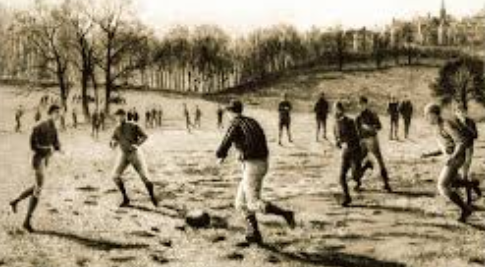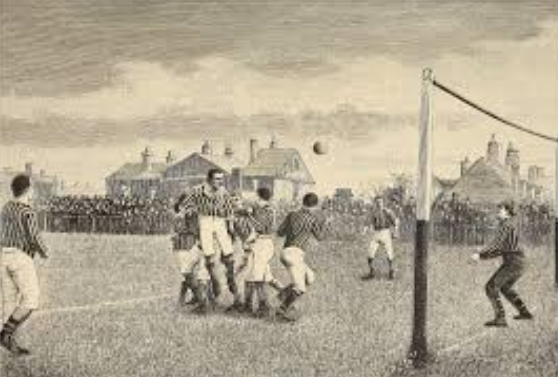The modern historical past of the world's favourite game spans greater than one hundred years. All of it began in 1863 in England, when rugby soccer and association soccer branched off on their completely different programs and the Football Association in England was shaped - becoming the sport's first governing body.
Each codes stemmed from a standard root and both have an extended and intricately branched ancestral tree. A search down the centuries reveals at least half a dozen different games, varying to completely different levels, and to which the historic growth of football has been traced back. Whether this may be justified in some situations is disputable. However, the fact remains that people have enjoyed kicking a ball about for 1000's of years and there's absolutely no reason to consider it an aberration of the more 'pure' type of playing a ball with the hands.
On the contrary, aside from the need to employ the legs and toes in powerful tussles for the ball, typically without any legal guidelines for protection, it was recognised proper on the outset that the artwork of controlling the ball with the feet was not straightforward and, as such, required no small measure of skill. The very earliest type of the game for which there is scientific proof was an exercise from a navy handbook courting back to the second and third centuries BC in China.
This Han Dynasty forebear of football was known as Tsu' Chu and it consisted of kicking a leather ball filled with feathers and hair by way of a gap, measuring solely 30-40cm in width, right into a small net mounted onto long bamboo canes. According to one variation of this train, the participant was not permitted to intention at his target unimpeded, however had to use his ft, chest, again and shoulders while attempting to face up to the attacks of his opponents. Use of the arms was not permitted.
Another form of the sport, additionally originating from the Far East, was the Japanese Kemari, which started some 500-600 years later and continues to be played today. This is a sport lacking the competitive aspect of Tsu' Chu with no battle for possession involved. Standing in a circle, the players needed to go the ball to one another, in a relatively small area, attempting to not let it contact the ground.
The Greek 'Episkyros' - of which few concrete details survive - was much livelier, as was the Roman 'Harpastum'. The latter was performed out with a smaller ball by two teams on a rectangular area marked by boundary strains and a centre line. The target was to get the ball over the opposition's boundary strains and as gamers passed it between themselves, trickery was the order of the day. The sport remained fashionable for seven-hundred-800 years, however, though the Romans took it to Britain with them, using feet was so small as to scarcely be of consequence.


Congratulations @txali91! You have completed some achievement on Steemit and have been rewarded with new badge(s) :
Click on any badge to view your own Board of Honor on SteemitBoard.
For more information about SteemitBoard, click here
If you no longer want to receive notifications, reply to this comment with the word
STOP